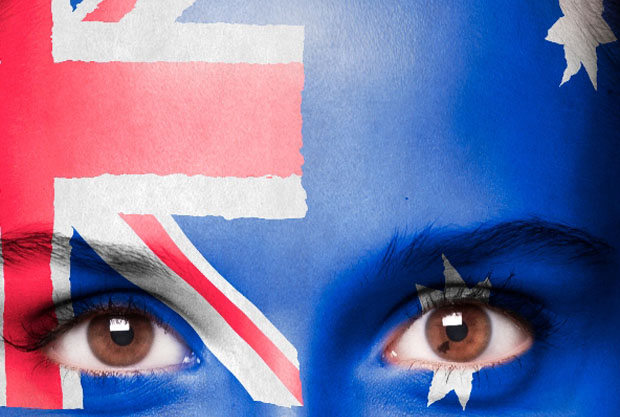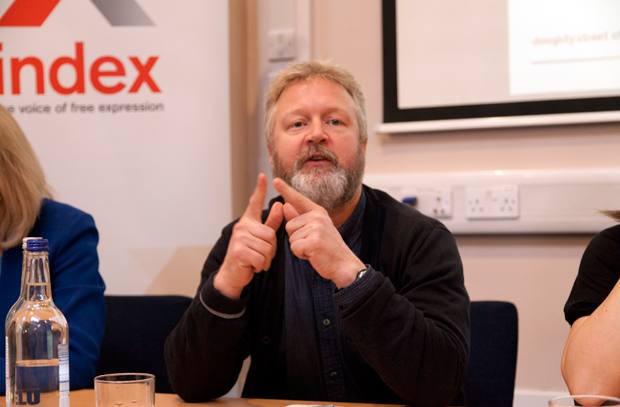2020 vision: Who runs the internet?
Index on Censorship, in association with Doughty Street Chambers, invites you to attend our high-level panel discussion asking who runs the internet?
At a moment when the revelations on NSA and GCHQ mass surveillance are opening up a wide debate about our digital freedoms, our panel will discuss how free the net is today, and the main challenges that lie ahead. In the next couple of years, major international summits will debate new rules on internet governance, and whether to adopt a top-down approach as favoured by China and Russia, or maintain a more open, multistakeholder networked approach. Meanwhile, from the EU to Brazil, reactions to the Snowden’s revelations of mass snooping suggest there is a growing risk of fragmentation of the internet, with calls for forced local hosting of data.
We are delighted to be hosting speakers:
Bill Echikson – Head of Free Expression EMEA, Google
Richard Allan – Head of Europe, Middle East and Africa, Facebook
Tusha Mittal – formerly a correspondent for Tehelka and currently a Fellow at the Reuters Institute, Oxford University
Kirsty Hughes – CEO, Index on Censorship
The panel will make short introductory remarks ensuring plenty of time for a lively Q&A session.
The event will be held at Doughty Street Chambers (53-54 Doughty St, London WC1N 2LS) on Wednesday 2nd April 6-7.30pm, followed by a drinks reception. To RSVP please fill in your details here. If you have any questions please contact Fiona Bradley ([email protected]).
Australia: Authorities want ISPs to police the web

(Image: Shutterstock)
When will Australian governments leave the internet alone? Successive governments have shown an inability to allow Australians to go about the business of using the web and browsing at will. Under previous Labor governments, an obsession grew about the need for a mandatory internet filter system. The system would have screened out sites falling into the “Refused Classification” category. Internet activists and the political opposition guffawed at the suggestion. It was deemed excessive and unworkable.
Australia’s new attorney-general, the prickly George Brandis, claims to be interested in freedoms. He certainly spends time talking about it, having established the new office of “Freedom Commissioner” and claiming that the political left has lost sight of traditional civil rights in favour of select, marginal entitlements. His appointee to the position, Tim Wilson of the libertarian Institute of Public Affairs, is meant to signal a policy shift.
Such a move does little to suggest how actual “freedoms” are going to be protected, let alone promoted. Australia’s legislative regime on rights, in the absence of a constitutionally protected bill of rights, is a quilt work of regulations. These are, as ever, the subject of parliamentary change.
When it comes to internet freedoms, Brandis shows a slightly different suspicion of its workings than his predecessors. But in targeting a form of behaviour he cannot accept, he proves to be on familiar ground. The focus here is not morally righteous in the manner of the pornography filterers, but it is righteous in the sense of protecting financial and economic rights. “The illegal downloading of Australian films online is a form of theft.” Both views share a common strand: a desire to circumscribe the way the net, and information, is used.
Before an audience at the Australian Digital Alliance copyright forum last week, Brandis made mention of how he might go about this. The government will consider various legal means to provide a “legal incentive” for ISPs to collaborate with copyright owners to combat infringements. “This may include looking carefully at the merits of a scheme whereby ISPs are required to issue graduated warnings to consumers who are using websites to facilitate piracy.”
A three-strikes system is being pushed, part of a global drive by developed countries to exert greater control over internet content. France, New Zealand, the United States and Britain are all in the stages of implementing such a program. Users of Australia’s broadband system who allegedly download pirated content will be warned before authorities intervene. This can involve threats of discontinuation from the use of the internet after three warnings. So far, owners of content in Australia have been pressing the government to use a warning system short of disconnection.
The effects of this have already been outlined in some detail. Internet service providers such as iiNet and Optus claim that such a policy move will shift the onus on them to police content. That is Brandis’ suggestion: to convert ISPs into cyber policing outfits that will remove websites hosting “illegitimate” material, thereby restraining downloads by customers.
A few points are worth mentioning. The first is how accountability for infringements can be attributed to an ISP. A ruling by the Australian High Court on the liability of an ISP for allowing the downloading of infringing content is instructive. In 2012, the court unanimously found in a case mounted by 34 studios and television companies against iiNet that the ISP was not liable for authorising copyright infringement.
Roadshow Films v iiNet proved to be a global test case on illegal downloads. It found that iiNet did not have direct power to prevent infringements given its lack of control over the BitTorrent protocol. The only way to prevent violations would have been excessive: eliminating a customer’s Internet access altogether, which would also prevent legitimate uses of it. Indifference to cases of infringement was not the same as authorisation of it. And expecting iiNet to do what the plaintiffs wanted would have resulted in heavy expense, inconvenience and liability for terminating customer accounts.
The other point to make is that such graduated systems are set to fail even as they unduly burden the industry. The experiences in France, New Zealand and the UK have shown them to be counterproductive. Steve Dalby, chief regulatory officer of iiNet, forcefully argues that content should be made available via a system of timely release using such streaming services as Netflix and Hulu. “It can’t be a coincidence that graduated response doesn’t work anywhere else in the world, and making content available in a timely fashion in the US market does work.”
Such suggestions by Brandis cast light on preliminary moves on the part of Australia to import American models of intellectual property law into the domestic system. Australia has been the least disagreeable of the countries involved in negotiating the Trans-Pacific Partnership Agreement with the United States, which contains a substantive chapter on intellectual property.
The intellectual property chapter of the secretly negotiated agreement, obtained by WikiLeaks, suggests the extent the TPP will control the way “protected” content, be it technology, medicine and publishing, will be controlled. Mandatory removals and targeting copyright infringements are fundamental to the changes. The main investors in such an arrangement are US companies who will seek, through the legal regulations in other countries, to control the release of protected material. Aspects of the contentious Digital Millennium Copyright Act have found their way into the agreement.
While the interests of copyright are important to consider, the tendency to control the global Internet via an internationalised copyright regime that coopts ISPs into the role of monitors serves no useful role in preventing infringements. This has the effect of turning a provider of such services into a security service for corporate rights. But it is a trend proving irresistible to all governments, especially those in industrial countries.
This article was posted on February 19, 2014 at indexoncensorship.org
Turkey’s internet law following nebulous drafting process

Turkish Prime Minister Recep Tayyip Erdogan (Photo: Philip Janek / Demotix)
A few weeks ago, internet privacy activists in Turkey began expressing alarm over newly proposed amendments to the law already governing the country’s internet activity.
If implemented, the changes would serve to increase the government’s already strong hold over the internet. Taking to social media and posting critical declarations on their websites, opponents of the law braced themselves for another debate over censorship in Turkey. Protests held on 18 January drew the attention of the riot police, who responded with pepper spray and water cannons. Despite this, some freedom of speech activists insist that the most effective resistance to censorship will be promoting internet security.
Law number 5651 was passed in 2007 and has since regulated freedom of expression on the internet in Turkey by censoring thousands of websites, including a two-year ban on YouTube. There has even been a European Court of Human Rights ruling against it. Opponents of the new, amended, bill have criticised its ability to collect and store internet users’ personal data and its increased censorship of websites deemed offensive. Others have cited its potential to slow down internet connections and damage Turkey’s beleaguered economy. The bill has already been redrafted this month, with a recent version extending the time period during which the Directorate of Telecommunication (TİB) would decide on banning websites from four to twenty-four hours. However, the previous time limit remains in “emergency” cases. This could also potentially change, as the bill will be redrafted again before it’s voted upon. While it is unclear when the vote will take place, it is expected soon.
The bill’s nebulous drafting process has prompted uproar among Turkey’s internet activists. Zeynep Karahan Uslu, the member of parliament who presented the draft bill, first tweeted last month that amendments were being prepared. Members of the Pirate Party of Turkey reacted by starting a public Google doc and encouraging their followers on Twitter and Facebook to contribute information about the law. At the beginning of this month, the Pirates posted a twelve-page declaration on their website, and news of the amendments spread through social media. Serhat Koç, a telecommunications lawyer and spokesperson for the Pirate Party, says people outside the party began editing and tweeting the declaration. Eventually, an aide for the recently formed People’s Democratic Party (HDP) approached Koç to ask if he would draft an opposing bill for their party. Koç remains pessimistic about what efforts to oppose the amendments can achieve. “I think nobody can change that draft bill,” he said.
Lawmakers and supporters of the new bill have argued that it serves to protect internet users’ privacy with regulations safeguarding their reputations against obscenity or defamation. But opponents have drawn attention to the dangers posed by the amendment’s blocking of URLs. While lawmakers have promoted this measure by saying URLs can be banned more selectively, critics argue the extent of censorship will be less visible to internet users. İsmail Alpen, a founder of the online campaign Sansürü Durdur, says that while court orders were previously displayed on blocked websites, “in the new system you won’t be able to see any warning,” leaving visitors to speculate about why they cannot access a website. “People won’t be notified about what has been censored,” Alpen said.
Other opponents of the bill see the proposed URL-based banning as means for legalising increased data collection. Ahmet Sabancı, a member of the Alternative Informatics Association, explains that blocking URLs instead of entire websites requires TİB to use deep package inspection. “URL-based page blocking forces ISPs to keep all logs for two years, putting all of our information into their hands,” he said. But according to Sabancı, most internet users aren’t concerned about data retention: “They think they can change their domain name server (DNS) numbers and surpass most censorship.” A few weeks ago, the Alternative Informatics Association launched the website kem gözlere şiş, which features guides explaining how to use tools for internet anonymity or circumventing censorship, like Tor, VPNs or encryption. Sabancı said most feedback he’s received since the site’s launch has been from political activists, and that most are excited about Tor because it’s the easiest to use.
In 2013, average user numbers of the Tor browser in Turkey remained low, at just a few thousand a month, according to statistics published on the anonymity network’s website. But if the amendments to law 5651 are passed, the potential increase in website censorship could see a surge in Tor and VPN use. “In general, as soon as a government starts talking about censorship, the populace responds by finding ways to circumvent the censorship,” Tor executive director Andrew Lewman wrote in an email.
Koç and other Pirate Party members are developing projects for secure communication, including a local mesh network and a whistleblowing platform for journalists. Currently, whistleblowers barely ever leak to journalists because anonymity software is not widely used, Koç says. Both Koç and Sabancı say many internet users’ disinterest in government surveillance has made it difficult to raise awareness about the new amendments to 5651 and the likely effects on internet censorship and data collection. But interest in anonymity has been growing since last year’s protests in Gezi Park were met with police brutality, Koç says.
Recently, more people have been contacting both Koç and Sabancı through social media to seek advice on using the internet anonymously. At a recent workshop held by Pirate Party members, on instruction on internet security, drew diverse visitors. “There were activists from the Turkish Green Party, citizen journalists, people who used Ustream in Gezi Park, some leftists associations. Censorship is not the thing for lots of people, but anonymity is necessary,” Koç said. “They want to be anonymous.”
This article was posted on 29 January 2014 at indexoncensorship.org


